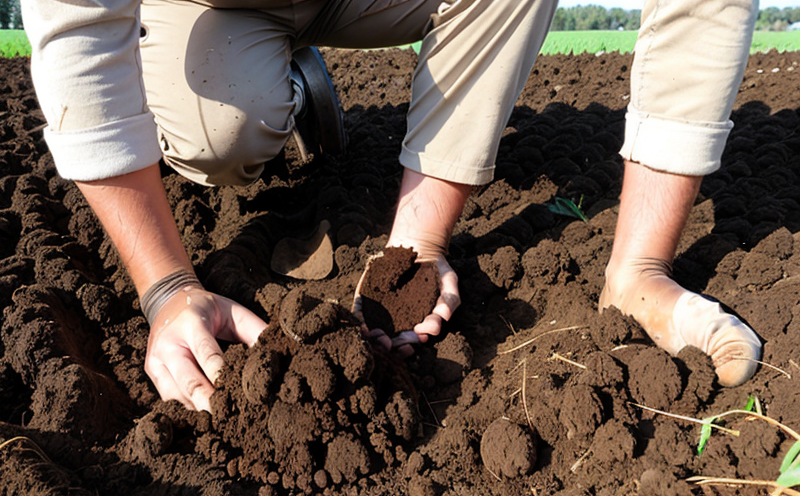Soil Cation Exchange Capacity (CEC) Testing
The Soil Cation Exchange Capacity (CEC) test is a critical analysis used to determine the soil's capacity to hold positively charged ions, which are essential for nutrient retention and plant growth. Understanding a soil’s CEC provides valuable insights into its fertility potential and helps in making informed decisions about fertilization practices, irrigation strategies, and overall agricultural productivity.
In agriculture and forestry, where sustainable practices are paramount, the CEC test plays a pivotal role in optimizing crop yields and ensuring environmental sustainability. This test is particularly important for evaluating soil quality before planting or after land management interventions to assess their impact on soil health.
The CEC is defined as the amount of water-insoluble cations that can be held by 100 g of air-dry soil when it reaches equilibrium with a saturated solution. The cations include potassium (K⁺), calcium (Ca²⁺), magnesium (Mg²⁺), and hydrogen ions (H⁺). These elements play crucial roles in plant nutrition, affecting the availability of nutrients for plants.
The CEC test is often performed using an ammonium acetate or sodium chloride extraction solution. The choice of buffer depends on the soil type and the region where the soil is located. For instance, a higher CEC value indicates better nutrient retention capabilities, which can be particularly beneficial in sandy soils that tend to have lower CEC values.
The test requires precise sample preparation. Soil samples are typically collected from various depths and locations within a field or plot. These samples are then air-dried, sieved to remove particles larger than 2 mm, and homogenized for accurate analysis. The prepared soil is then extracted using the chosen buffer solution, and the resulting extract is analyzed using spectrophotometric methods or ion chromatography.
The results of a CEC test are expressed in milliequivalents per 100 grams (meq/100g). This value provides a quantitative measure of the soil's ability to hold cations, which is vital for understanding its fertility and potential. In agricultural applications, soils with higher CEC values may require less frequent fertilization due to their natural capacity to retain nutrients.
The interpretation of CEC test results in conjunction with other soil tests, such as nutrient content analysis (NPK), pH testing, and organic matter assessment, allows for a comprehensive understanding of soil health. This holistic approach is essential for developing sustainable agricultural practices that ensure both short-term productivity gains and long-term environmental sustainability.
For forestry applications, the CEC test can help in selecting suitable tree species for different soil types or predicting the impact of reforestation on local ecosystems. It also aids in evaluating the effectiveness of erosion control measures by assessing changes in soil structure over time.
Scope and Methodology
The scope of a Soil CEC test encompasses determining the capacity of soil to retain positively charged ions, which is essential for nutrient management. This service employs standardized methods based on international standards such as ISO 17244-3:2018, ensuring accuracy and reliability.
Our methodology involves collecting representative soil samples from various depths and locations within the field or plot of interest. These samples are air-dried and sieved to a consistent size before extraction with an ammonium acetate buffer solution at pH 7.0. The extracted ions are quantified using advanced spectrophotometric techniques.
The test adheres strictly to ISO guidelines, ensuring that results are comparable across different laboratories worldwide. Our team of experts ensures that each step is carried out meticulously, from sample collection and preparation to the final analysis. This rigor guarantees accurate and reliable CEC values for informed decision-making by agricultural and forestry professionals.
Eurolab Advantages
At Eurolab, we pride ourselves on delivering top-tier Soil CEC testing services tailored to meet the specific needs of our clients in agriculture and forestry. Our advanced facilities equipped with state-of-the-art instrumentation provide precise and reliable results.
We employ highly qualified personnel who are experts in soil science, ensuring that each test is conducted with the utmost accuracy. Our comprehensive approach includes not only CEC testing but also a wide array of related services such as nutrient analysis, pH measurement, and organic matter content determination.
Our clients benefit from our extensive experience and expertise, which enables us to provide tailored recommendations based on comprehensive soil data. This holistic view helps in formulating sustainable agricultural practices that maximize yield while minimizing environmental impact.
Why Choose This Test
Selecting the correct Soil CEC test is crucial for optimizing crop yields and ensuring long-term soil health. Here are several compelling reasons why you should choose Eurolab for this service:
- Precision and Reliability: Our tests adhere strictly to international standards, ensuring accurate and reliable results.
- Comprehensive Soil Analysis: In addition to CEC testing, we offer a wide range of related services that provide a complete picture of soil health.
- Expert Personnel: Our team consists of highly qualified professionals with deep expertise in soil science and agricultural practices.
- Tailored Recommendations: Based on comprehensive data, we offer recommendations to optimize crop yields while promoting sustainable farming methods.
- Compliance and Sustainability: Our services help you meet regulatory requirements and promote environmental sustainability.
- Client Satisfaction: We prioritize client satisfaction, ensuring that our services exceed expectations in terms of quality and reliability.





